
Overworked Employee Quits Because He Wasn’t Getting A Fair Wage, Costs The Company $40 Million
Not paying your employees a fair wage can have disastrous consequences for the company’s bottom line. Some business owners realize this only when it’s far, far too late.
Redditor u/slw_motion_trainwrck opened up about how he quit his low-paying, exhausting IT job at a major multinational company… and how the day after he left work, the business lost $40 million. In three very extensive posts on r/antiwork, the redditor detailed exactly how this happened, and the read is absolutely riveting.
Scroll down for the full story and more details about why exactly the manufacturing company that makes components for the automotive industry lost as much money as it did, dear Pandas. It’s definitely worth your attention. You’ll see just how low companies go and how far from every promise is worth listening to if it’s not in writing.
Financial expert Sam Dogen, the author of ‘Buy This, Not That: How to Spend Your Way to Wealth and Freedom’ and the founder of Financial Samurai, was kind enough to share his opinion with Bored Panda on how to gauge if someone is underpaid.
“The best way to gauge if you are underpaid is to ask your colleagues and other people in your industry what they are getting paid. They might be hard-pressed to reveal their figures at first. Therefore, you can ask for a range and also volunteer your wage and ask for their guidance. Getting average wages for your job based on online websites is not too helpful given their numbers are averages and all over the place,” he told us that employees should ask around to see if they’re being paid a proper wage.
According to financial expert Sam, a good employee knows their value. “The more an employee is irreplaceable, the more valuable the employee is. Therefore, if you know that your business will run just fine without you for one month or longer, you may not be as valuable as you think,” he said. “On the other hand, if you feel your business will suffer if you’re out longer than a week, then you are considered more valuable. No manager wants to lose a valuable employee because it takes a lot of time to find and train a new employee.”
An IT specialist, who was very overworked and incredibly underpaid, decided that he wanted better work conditions
Image credits: Flipsnack (not the actual photo)
However, the multinational company was less than friendly, and drove itself into a huge financial mess as a result. Here’s the full story
He then summed up the story in one short sentence
It’s natural to have at least some worries about being let go from your job. However, Sam said that we can control this fear by knowing our value as employees and highlighting the benefits that we bring to the company at semi-annual reviews.
“You can also suppress your fear by actually trying to get laid off! It sounds counterintuitive, but if you are truly a valuable employee, you may want to try and negotiate a severance and find a new job for better pay, benefits, and title. Having the courage to try and negotiate a severance means you really know your worth,” the expert said.
“I actually wrote a book on how to negotiate a severance entitled, ‘How To Engineer Your Layoff: Make A Small Fortune By Saying Goodbye.’ I negotiated a severance in 2012 worth six years of normal living expenses. I could have worked for another firm after, but I decided to just be free,” he shared.
The redditor shared how he was left being the only person in IT to support 3 factories. All for a measly salary of just $31k per year, while their superior had earned thrice as much when they were doing the same job a while back.
According to u/slw_motion_trainwrck, he was working, on average, 16 hours a day, 7 days a week for over a year. He worked every weekend and through all the holidays. Not just Christmas, mind you. He was busy doing his job during birthdays, too: his own, his wife’s, his kids’. That’s no way to live.
Eventually, enough was enough. He was offered a paltry $800 annual pay raise before taxes, so he decided to look for another job with a better salary and working hours. When he finally gave in his two weeks notice, the IT specialist found that the multinational company was doing its best to make his life a living hell.
However, Karma showed up and made the company lose $40 million the day after he officially left his job. You see, the way the manufacturing company’s contracts are set up mean that it pays fines if something happens to its production facilities: if the order isn’t being produced on time, the business loses money.
“When an automotive manufacturer completely shuts down production on about 10 assembly lines… costs add up very quickly. That is hundreds of salaries every single minute to reimburse… so when I say that it cost the company $218,000 per minute, that is an exact factual number,” the redditor noted.
Here’s how people reacted to the story about huge financial losses and management’s refusal to provide their employee with a proper wage
Previously, fitness expert Jack Bly told Bored Panda about the relationship between our health and our jobs. According to him, we’re able to perform better at our jobs the healthier we are. So prioritizing our fitness, diet, and rest is vital if we want to succeed in life.
“To increase our work output, the #1 place I look at is health. Better health leads to more energy, more focus, and more productivity. To improve our health and ultimately our output, we need to make sure we’re doing things like sleeping 7-8 hours consistently, [having] good nutrition, [and maintaining] consistent exercise,” he told us.
“Prioritizing things like workouts actually give us more energy rather than take energy,” he pointed out, saying that there is a “night and day difference in our output” when we eat well, move enough, and get enough sleep.
Jack noted that the hours we work are irrelevant. All that matters is what we do with them. “What truly matters is true output/results you can get. Person A: works 8 hours to get X work done Person B: works 3 hours to get the same X work done. Which person would you rather be?”
The redditor explained why he stuck with his awful job for such a long time, in a very candid follow-up post
Image credits: slw_motion_trainwrck
Average 16 hours a day for a year? I’m not even going to do that. And no overtime? A salary is for eight hours a day and maybe an occasional hour or two over. The fact that this person is a supposed to be a good IT and worked several years for around $30k and then withstood over a year with that abuse makes me wonder what is wrong with him.
Another sign that IT is not valued is they are considered labor exempt - companies don't have to follow the federal labor laws.
Load More Replies..."Right to work" means you have the right to work for sh!t wages and bosses who have no obligations to treat you fairly.
Not always. We live in a Right to Work state. When I took over as DOO of our firm, I immediately gave everyone raises that were almost 1/3 additional to their previous salaries. I also started paying 100% on all medical premiums (from 30%), increased their company-paid life insurance by 300%, doubled their number of sick days and vacation allotments, and created a new bonus structure that ensured most of my workers had an easy way of making bonuses when they performed well. I created fun things at work, started an employee appreciation campaign that my employees really appreciated, and also started being much more flexible about office hours bc I started basing work hours on performance and work quality. My partners thought I had lost my mind at first, but I think our firm is proof that you don't have to be a d**k boss to get good work. Although the flip side of this is that I have to get rid of dead weight as soon as possible, because one bad apple can spoil everything.
Load More Replies...Posted before about so I'll keep it short. Not IT, but supervisor got fired. I trained new supervisor. Got promoted. Owner saw I could handle it all. Fired other supervisor. Wouldn't give me more money. Said I needed to do more. I quit. Company folded not long after I left.
Average 16 hours a day for a year? I’m not even going to do that. And no overtime? A salary is for eight hours a day and maybe an occasional hour or two over. The fact that this person is a supposed to be a good IT and worked several years for around $30k and then withstood over a year with that abuse makes me wonder what is wrong with him.
Another sign that IT is not valued is they are considered labor exempt - companies don't have to follow the federal labor laws.
Load More Replies..."Right to work" means you have the right to work for sh!t wages and bosses who have no obligations to treat you fairly.
Not always. We live in a Right to Work state. When I took over as DOO of our firm, I immediately gave everyone raises that were almost 1/3 additional to their previous salaries. I also started paying 100% on all medical premiums (from 30%), increased their company-paid life insurance by 300%, doubled their number of sick days and vacation allotments, and created a new bonus structure that ensured most of my workers had an easy way of making bonuses when they performed well. I created fun things at work, started an employee appreciation campaign that my employees really appreciated, and also started being much more flexible about office hours bc I started basing work hours on performance and work quality. My partners thought I had lost my mind at first, but I think our firm is proof that you don't have to be a d**k boss to get good work. Although the flip side of this is that I have to get rid of dead weight as soon as possible, because one bad apple can spoil everything.
Load More Replies...Posted before about so I'll keep it short. Not IT, but supervisor got fired. I trained new supervisor. Got promoted. Owner saw I could handle it all. Fired other supervisor. Wouldn't give me more money. Said I needed to do more. I quit. Company folded not long after I left.

 Dark Mode
Dark Mode 

 No fees, cancel anytime
No fees, cancel anytime 







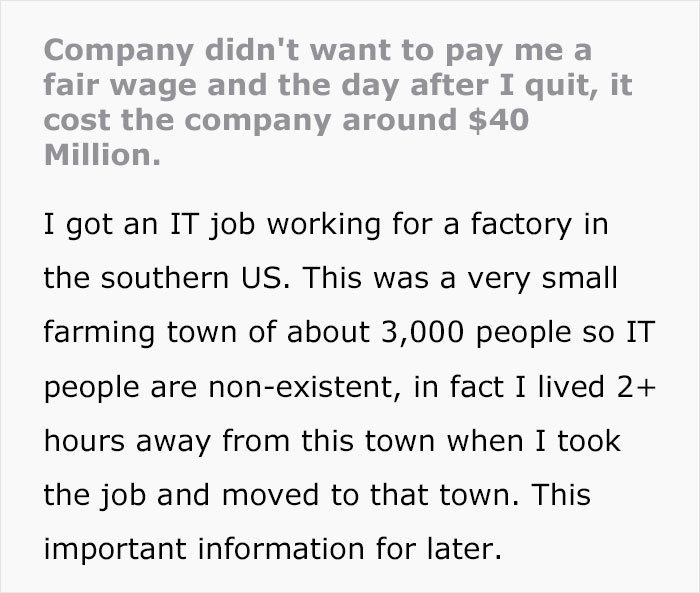
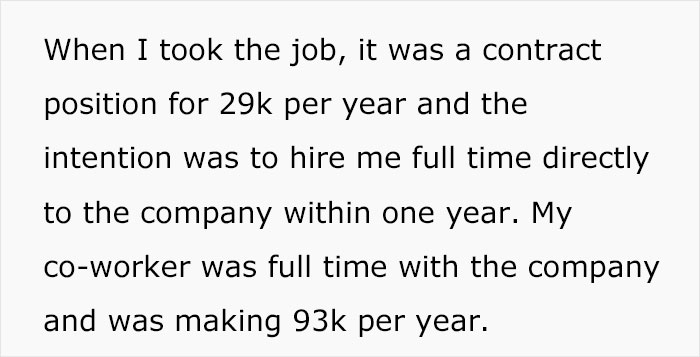
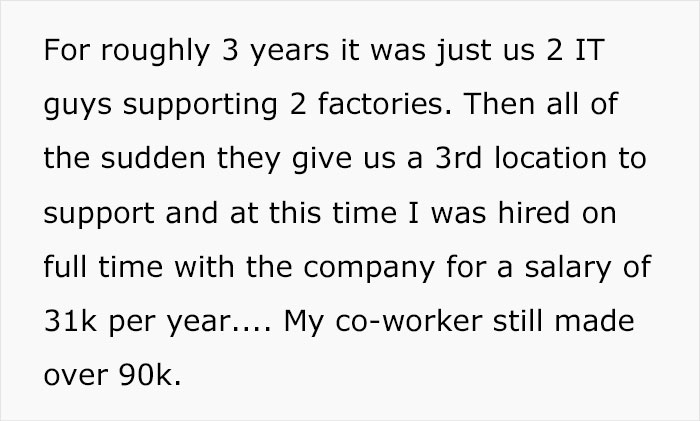
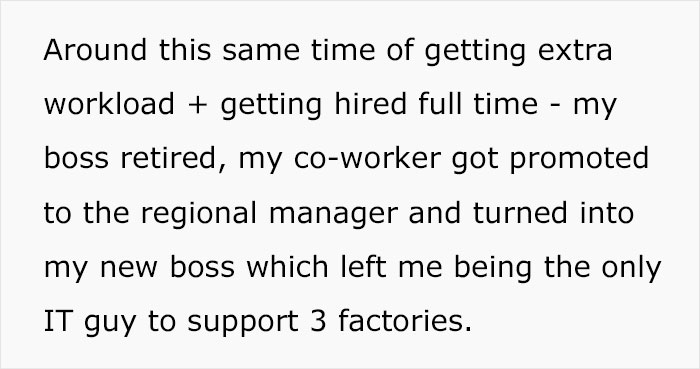
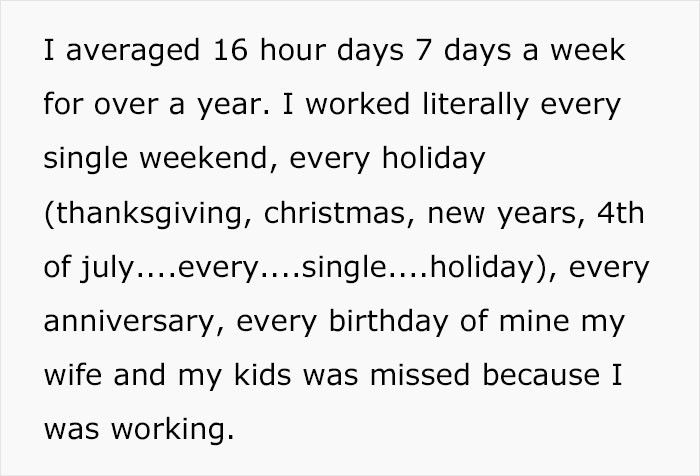
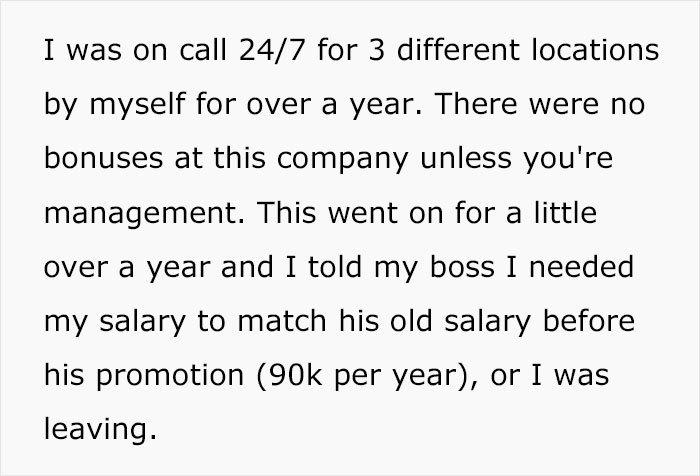
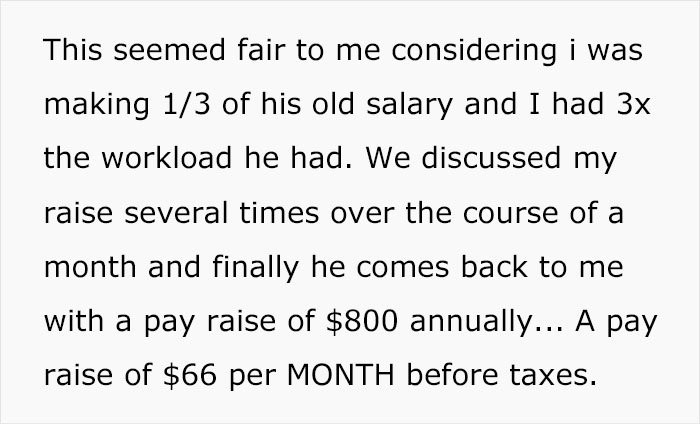
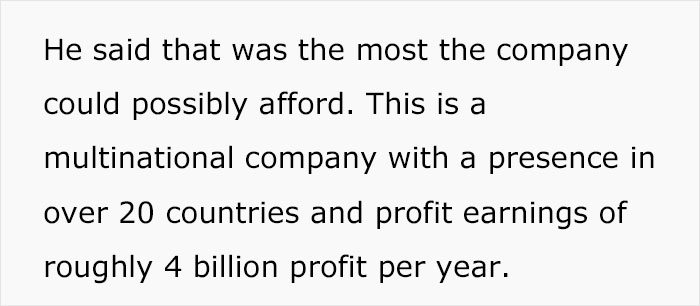
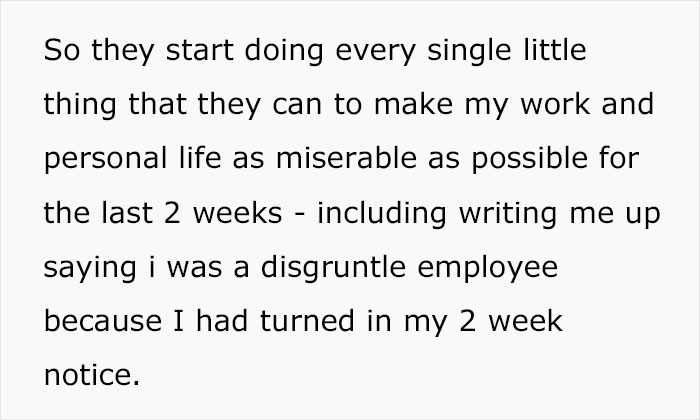
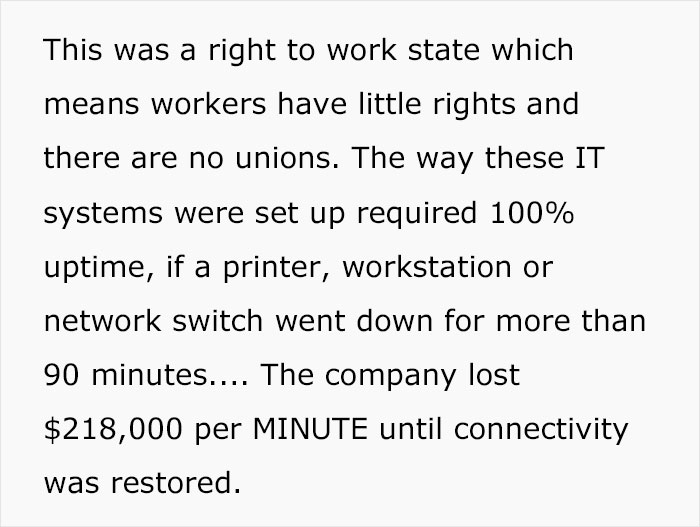
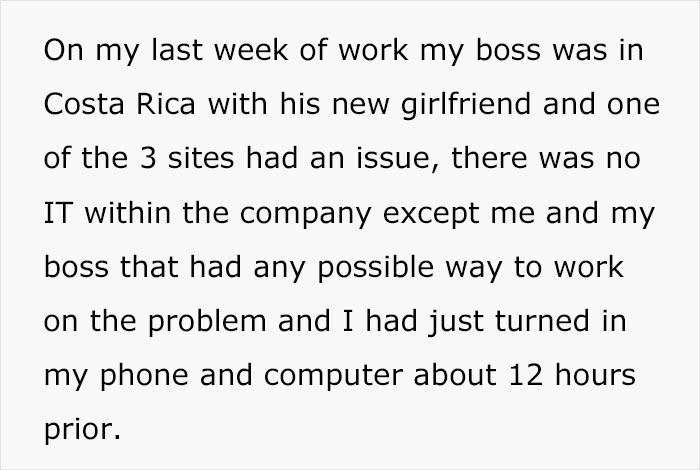
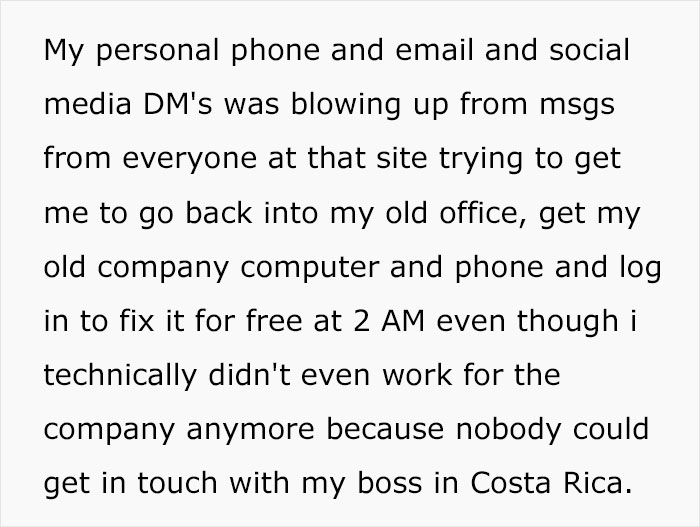
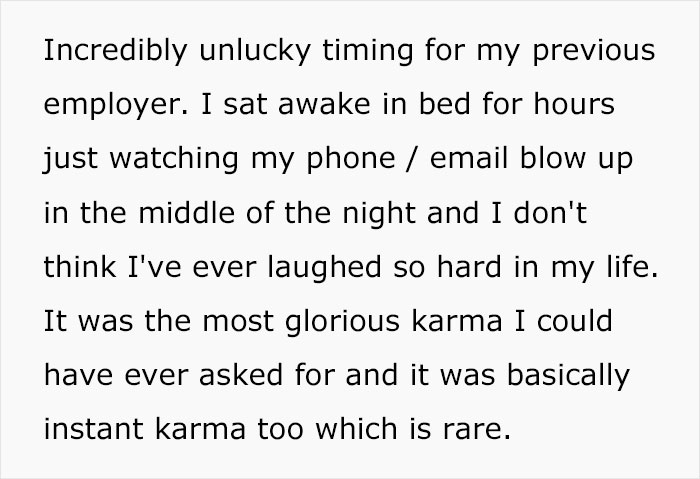
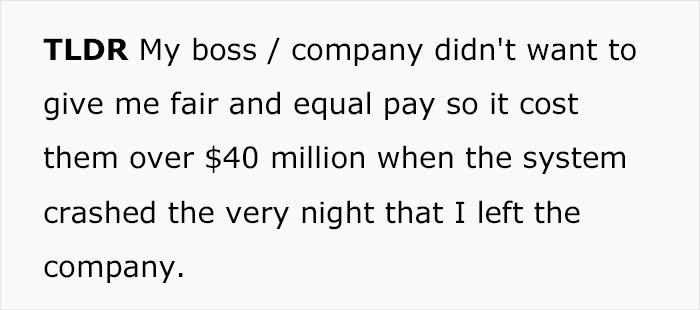
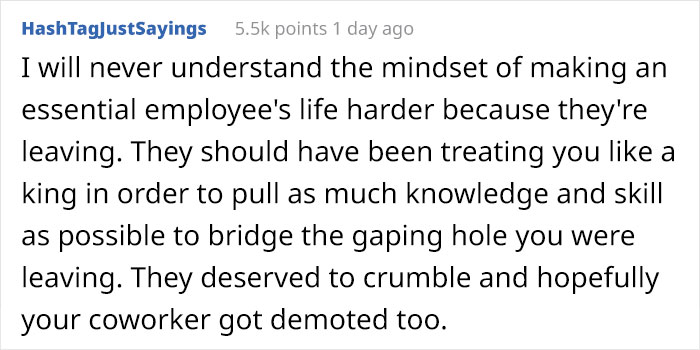
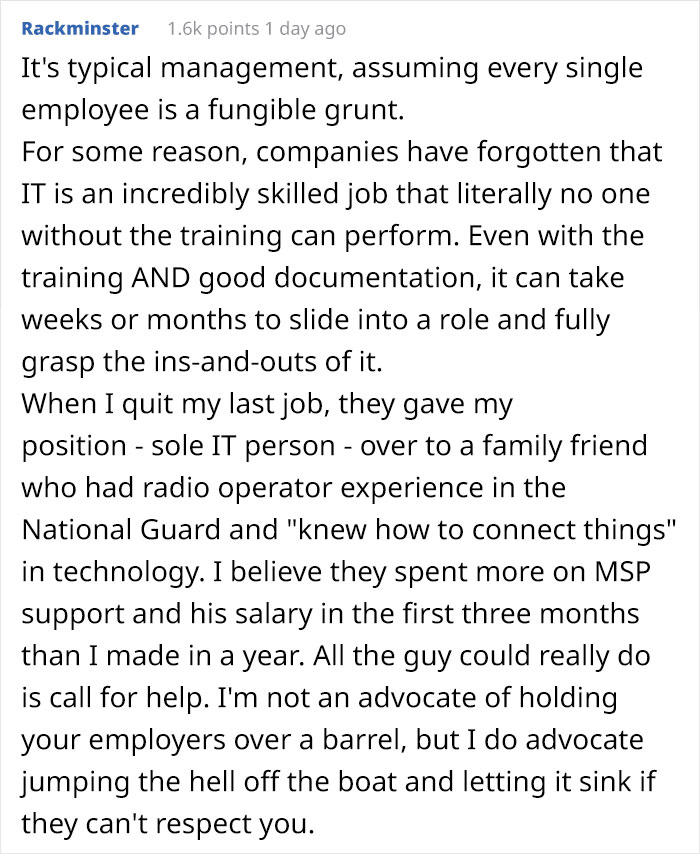





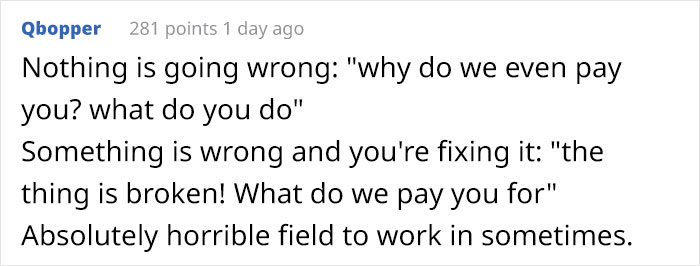
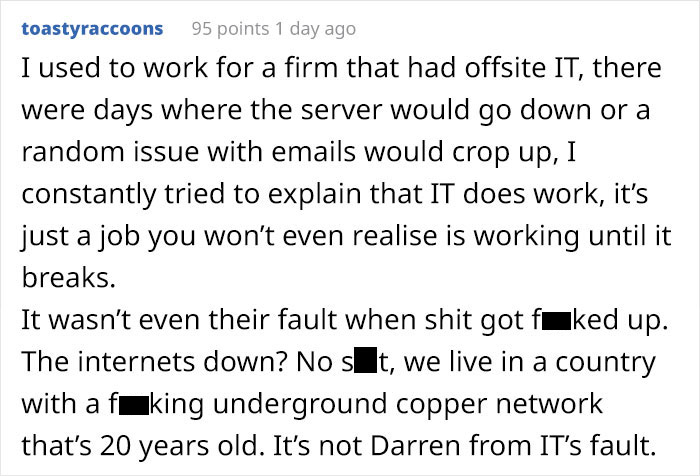
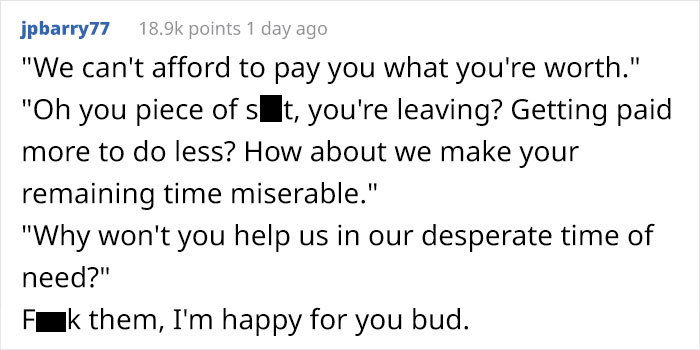

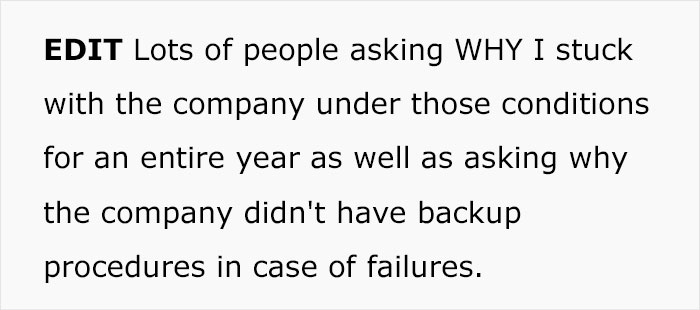
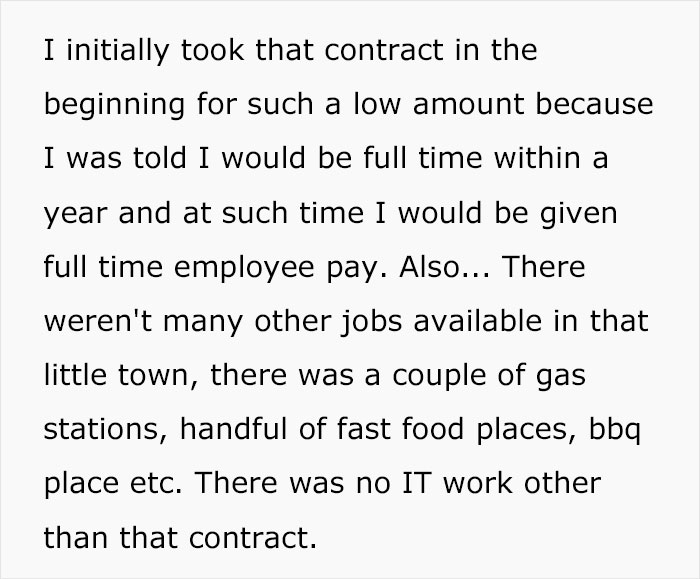
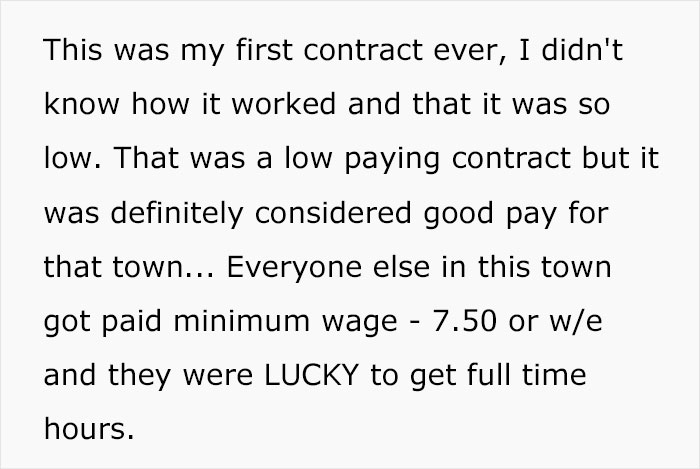
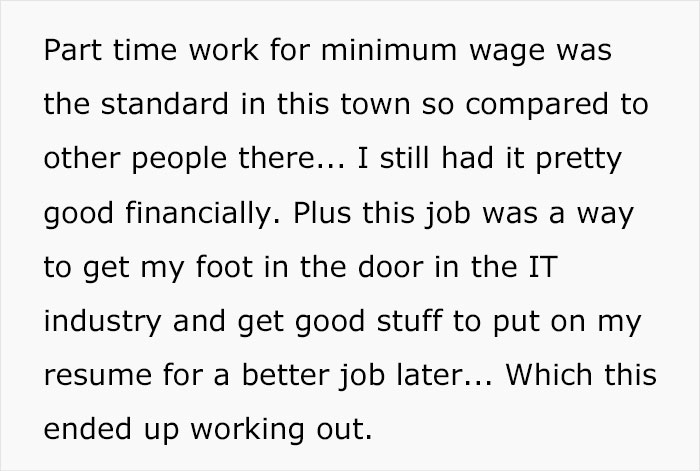
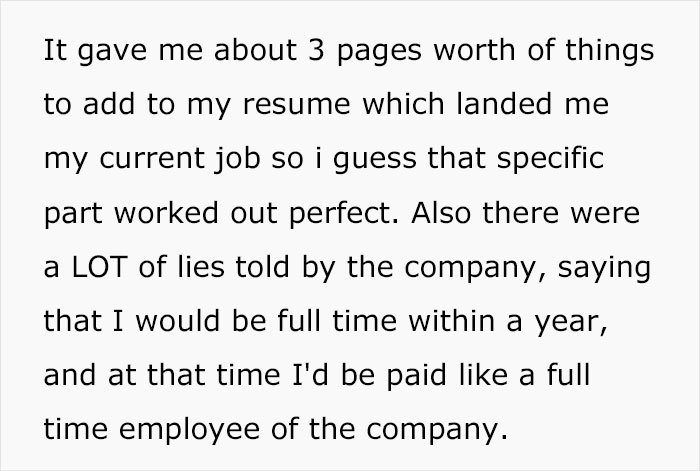
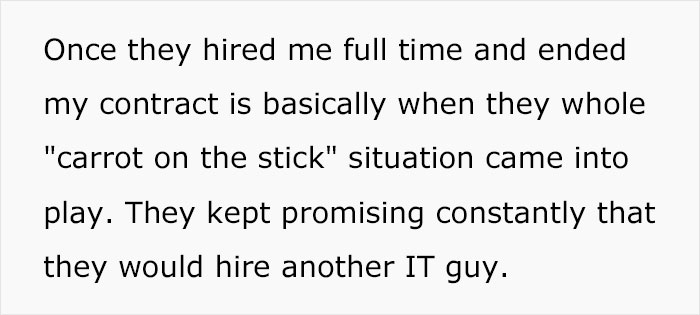
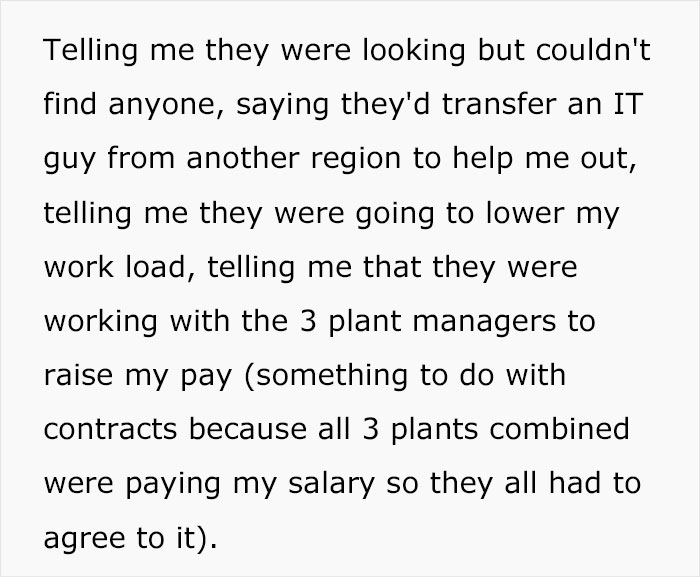

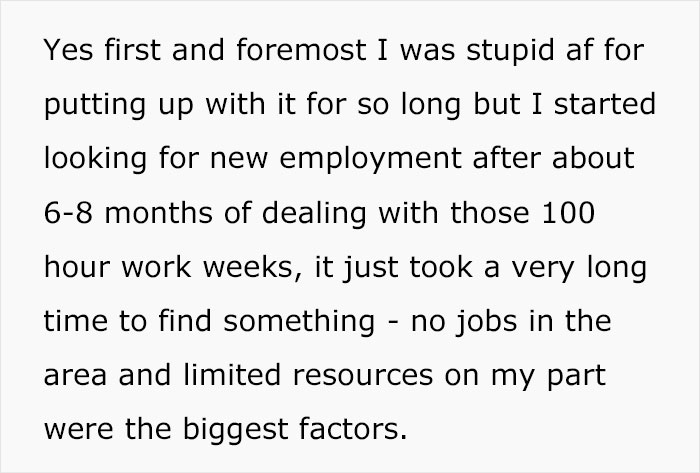
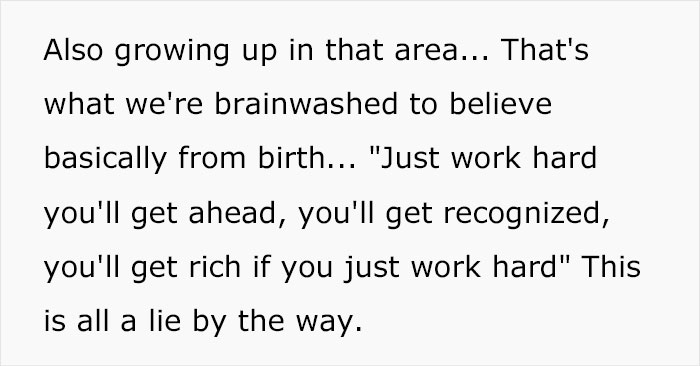
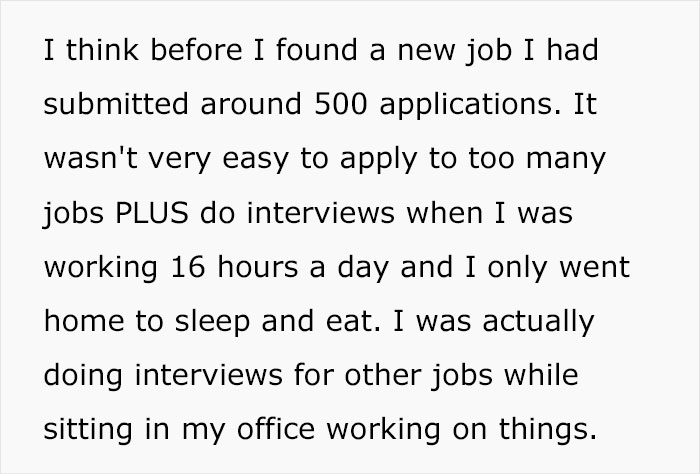
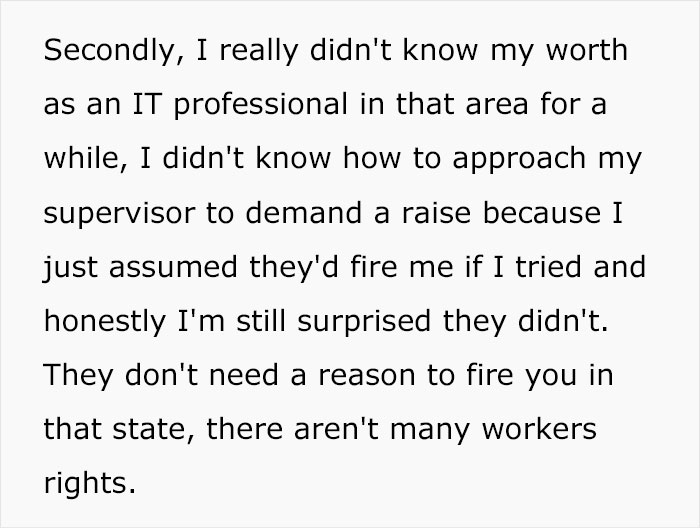
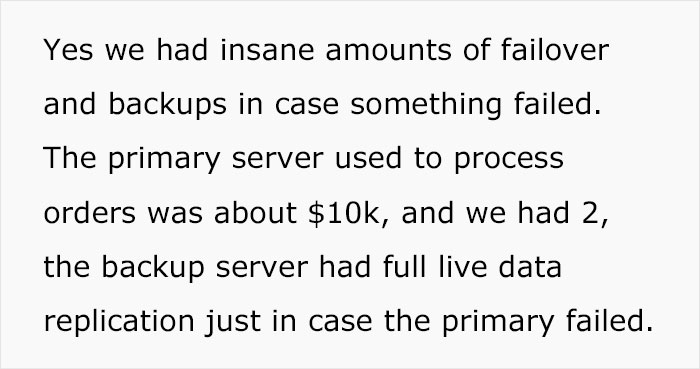
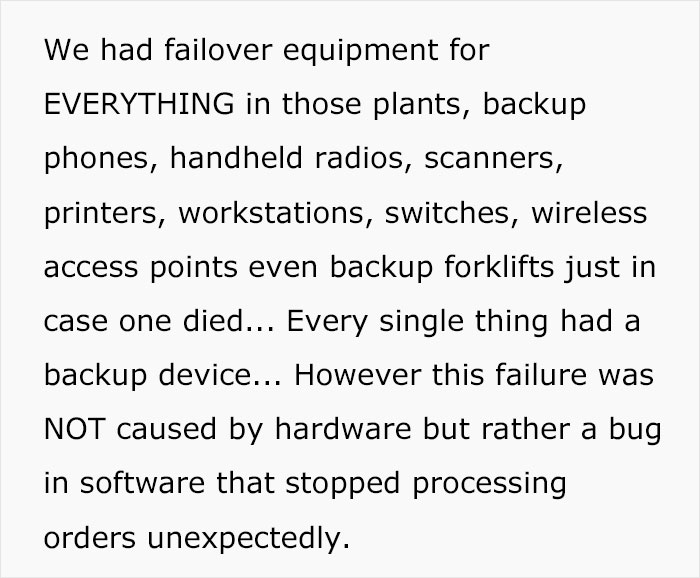
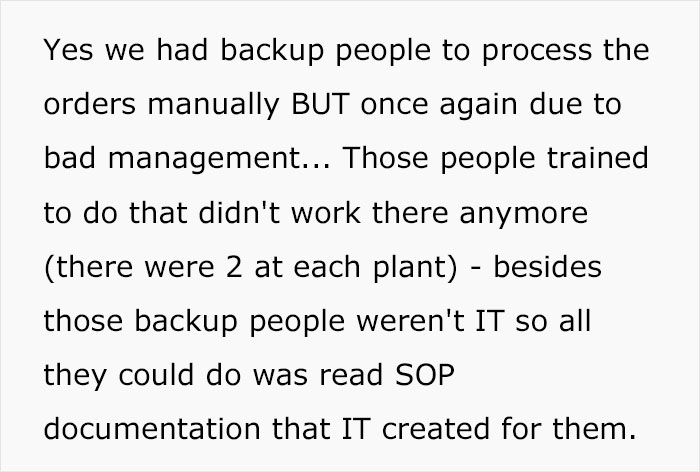
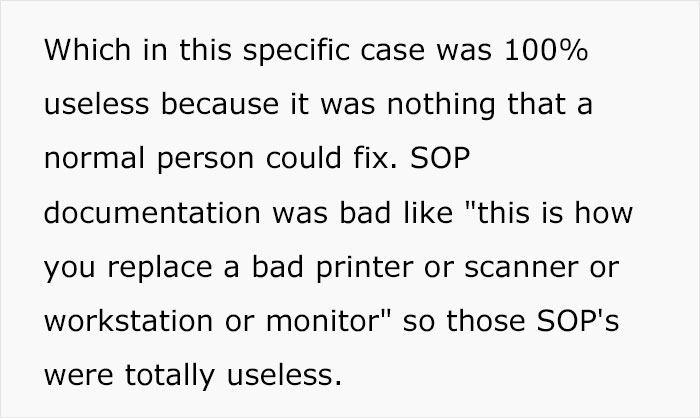

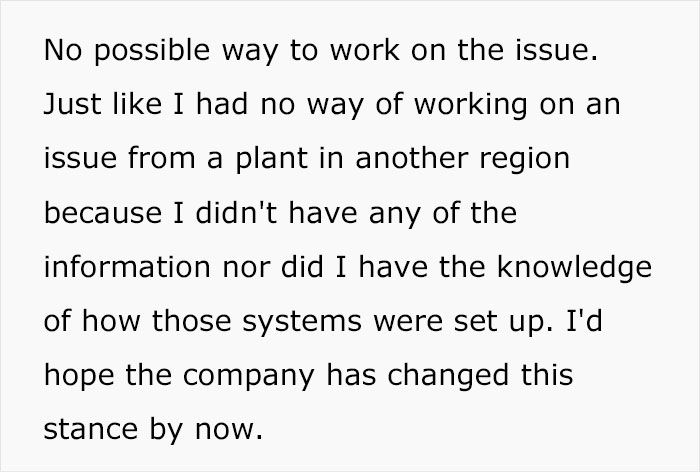
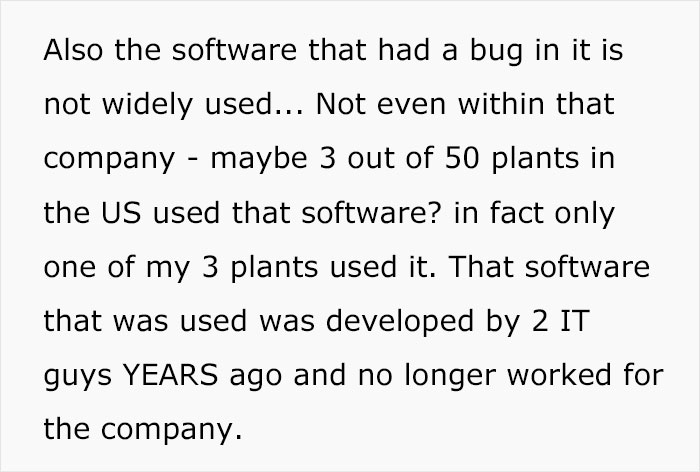












































243
263